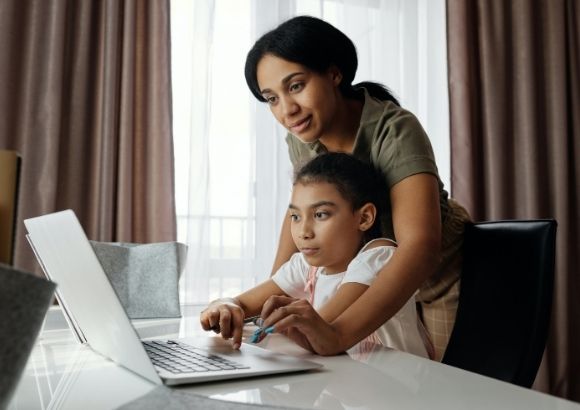Support schools and students in overcoming e-learning challenges
 Schooladvisor Team
Schooladvisor Team
Adapting to online learning is a lengthy process, and both students and teachers would need the appropriate support while navigating the new normal.
The first step towards assistance would be recognising the issues in online learning faced by students and teachers. Once the problems are identified, steps to curb the issues can then take place.
Some suggested ways to help schools deliver education more effectively online are:
- Engaging students in more active learning by providing materials and resources to encourage self-research
- Personalising learning by focusing on the interests of the student, which can increase motivation to study
- Refocusing certain education costs onto computers and resources that can help students and teachers with their e-learning classes
Supporting students and teachers during the e-learning process shouldn’t only be limited to the school, however.
Help from the home
Parents and guardians must help too. As family members spend more time at home during this period, they too can provide support and guidance to the child, more so during their online classes.
There are a few ways that parents can help their struggling children adapt to e-learning. One of them would be to set up consistent communication between themselves and the teacher, so that the latter may know if the child is improving or needs help in certain areas. Moreover, parents can also help their children with homework, and explain things in place of the teacher, who’d normally do that in class.
Parents must also ensure that their child is not distracted while attending online classes. For students to concentrate, they need peace and quiet, and it’s important for parents to respect that. Therefore, they shouldn’t disrupt learning time by asking the child to do chores or take care of younger siblings. Furthermore, they can minimize distractions by crafting a special learning space for their children to study in.
Parents will also need to keep an eye out to see that the child is indeed paying attention at class, instead of playing video games on a separate screen or chatting with their classmates online.
However, if your child is still facing problems, you can consider hiring a tutor. A tutor can offer professional help to your child and provide individual attention, so your child has someone who can completely focus on him and help him to catch up on where he’s fallen behind.
Additionally, parents can also share with their children how they handle working from home. Talking to your child about how you handle your own schedule and work goals may help her manage hers and sharing your own challenges about the workplace may help her feel less alone in all this.
Governmental support
The government is also finding ways to support e-learning in schools. Digital learning platforms specialised towards e-learning are currently in the works – in June 2020, the Ministry of Education (MOE) announced a refreshed digital learning platform for teachers, educators and students. Called “Digital Educational Learning Initiative Malaysia” or DELIMa, the platform is the result of a partnership between the MOE and Apple, Google and Microsoft. It contains everything both students and teachers need in an online classroom, including digital learning enabling technology and resources such as Google Classroom and Apple Teacher Learning Centre.
Additionally, the government has also collaborated with television platforms to deliver educational content to underprivileged students. Kelas@Rumah, an educational programme aired daily on free-to-view channel TV Okey, was created to help students keep up with the curricula while being confined at home due to the CMCO. Taught entirely in Bahasa Malaysia, the programme is directed at students preparing for PT3 and SPM.
However, these methods alone are insufficient. In an article published by the New Straits Times in April, teachers faced a lack of resources and facilities required to deliver a proper e-learning experience. Moreover, students without gadgets or Internet access are unable to attend their classes, resulting in poor grades and slowed progress.
One way the government can support e-learning is by allocating more funds to public schools. With government funding, financial and resource problems faced by teachers and students can be settled, and teachers and students alike can find e-learning an easier system to adapt to.
Furthermore, the government can also arrange for special training workshops to be given to educators who are facing problems adapting to an online setting. Through these training sessions, teachers can learn skills that would help them conduct an e-learning class, as well as discover alternative ways to engage their students.
It’s unclear when the pandemic will fully end, but until then, students and teachers must adapt to the new normal of virtual learning. Even so, the efforts now to normalise online learning may result in it being the norm of the future. In that case, further effort must be made to support public schools as they step into the new and unfamiliar territory of virtual learning.
Recent Articles
- What Should You Be Looking for in a Preschool?
- HELP Education Group Unveils New Sports Oval in Subang 2 Campus
- Exploring the Homeschooling Path: What Parents Need to Know Before Taking the Leap
- More Parents Are Now Opting for International Schools in Malaysia
- AISM Students Who Dream Big and Build Bigger

